On overwhelm, solace, and the importance of insects
Yeah, it's been a while, sorry
Hello.
It’s been a long time since I’ve posted anything. To be completely honest, I’ve sunk deep beneath the earth, existing in a kind of quiescence, letting all manner of things pile up on top of me (work, mostly, which seems unrelenting this year) and I’ve found it near impossible to extract myself from this Murakamian well to seek the creativity found in the written word1. I want to claw my way back to the surface, though, and to do that I must start somewhere. Here, perhaps. There are flames hidden below the keys, I am sure. Stories await, if only I can find them.
Despite the dark mustiness of this well, I have managed to maintain my external reading2. Nothing this year has quite topped the majesty and brilliance of Bolaño’s 2666 (I still dream of The Part About Archimboldi), and so I have felt somewhat bereft of inspiration during my daily commutes from one side of the well to the other. I did go on to read Bolaño’s earlier work, The Savage Detectives, which opens with such fervour and propulsion that I knew it couldn’t be sustained for its 600-or-so pages. Sadly, it couldn’t. That’s not to say I didn’t love it (I did!) but it didn’t hit as hard as his later masterpiece.
Compelled enough to stay with Latin American literature, I read my first dose of Mariana Enriquez via her short story collection, Things We Lost in the Fire. Macabre and dark, weaving political, societal and cultural themes from Argentina’s haunted past, I’d recommend this for anyone interested in understated horror. Many of these stories end abruptly, though the unresolved tension and ambiguity this creates certainly worked. (There were two absolute standouts: Adela’s House, about a girl swallowed up by a—yes, you guessed it—house, and Spiderweb, my favourite because it holds a certain intangibility that even now I cannot grasp. A road trip. Ghost stories. A husband goes missing. The end.)
I turn my attention now to Tomorrow, Tomorrow, Tomorrow, by Gabrielle Zevin, which has long been on my list. Josephine just read it and loved it and it ties in with what I really want to talk about here: something close to my heart, something I can tap into as a means of re-ignition, the small ember that prevents the well from becoming eternally dark, a place where I go to renew my energy, find solace and peace beneath the soil. I’m still talking about stories, of course, but not of the traditional paper-based form.
I’m talking about games.
A hundred or so years ago, when I was about ten and the hormones of adolescence were yet to emerge in my being, I spent a lot of time with my brother in a house in the middle of England. The house was on a main road, a great long road that in places was so straight there was no doubt the Romans had a hand in its building, the house having a short driveway secured by a gate that at night my father locked with a padlock so that no burglar could attempt to rob us of our goods. It was a precaution. Or a statement of his anxiety. Or perhaps it was both.
My brother, Sam (hello!), was and still is a year and a half older, and although we differed in some of our tastes, there was one thing that grounded us from an early age: a love of computer games. We were lucky enough to own an Amiga (thanks, mum and dad), then a desktop PC, a giant box that ran nothing but DOS, and then a better PC with Windows, and so on, until the late nineties when the doubling of transistors meant not just a CPU but also a graphics card, and this continued and flourished and that love has never died, and though we live half a world apart, that connection keeps us just a message away from a discussion or piece of news that invariably has its roots in a hobby that together we nurtured in our youth3.
I think there are many who see games only as a form of entertainment, or perhaps a useless waste of time—either through ignorance or a simple naïvety as to the wealth the medium offers. Personally, I stand firm in the yes-it’s-clichéd Games As Art camp, viewing them no differently than films, books and, well, art, and the power that such can bring. (The right games, I should add, because much like with films and books and canvases splotched with colour, there’s a lot of trash out there.)
I could talk about many games and what they mean to me, the period of life they hold significance to, why they work, their merits, et cetera, but I want to talk—briefly, because I’ve forgotten how easy it is to blather on for a thousand words or so—about just two: Hollow Knight, and its recent sequel, Silksong.
The original Hollow Knight released in 2017. It was made by Team Cherry, a team of three guys in Adelaide, Australia. They’d had a successful Kickstarter campaign, though it by no means smashed any records, nor did it meet all of its stretch goals that promised additional content. They persisted, though. They devoted themselves to their vision and made it happen. Upon initial release, it garnered good praise, but didn’t break huge records. That praise built, slowly at first, and then gained steady momentum until it blossomed into one of the most successful indie titles ever created, selling somewhere around 15 million copies.
But why is it so beloved? What is it about the game that has entranced so many?
Good question.
In the first game, you play as a small creature—the Knight—who descends into the ruined, insect-filled kingdom of Hallownest. And a descent it is. Through its many, many hours you explore myriad locales full of strange creatures, stories, and environments. You’re thrown in with almost no context. It’s up to you to try to understand the world, what happened, what’s happening, and what role you might play in its salvation or demise. I won’t say any more than that, because to do so not only amounts to spoilers, but also because trying to explain the experience of the game will do nothing to capture the actual experience of playing it, of immersing oneself in it, of emerging out of the other side.
Its sequel, Silksong, follows a different character, Hornet, who featured as an adversary in the first game. Here, she finds herself captured and brought into the equally bug-filled kingdom of Pharloom. Silksong was six or seven years in the making. It broke the internet when it released, such was the anticipation of fans. Could such a long wait live up to expectations and hype? Put simply: yes. Team Cherry have once again delivered just as rich, complex and thrilling an experience as the first game. I adore them both, in equal measure. They represent everything I love about the medium. Though digital works of art, these capture living worlds—broken and decaying ones, at that—inhabited with creatures whose words leave a lasting impact, with environments holding secrets to uncover and with a central character that offers skills to master. Much like with Enriquez’s Spiderweb, I find a certain intangibility in trying to express what I feel from the experience, though part of the appeal is certainly the art style, hand drawn by Ari Gibson. The clean lines, the palette choice, the expert use of parallax with the 2D perspective. It all just works. It immerses you4.
Central to this immersion, too, is the orchestral score penned by Christopher Larkin. I have listened to both soundtracks countless times, finding it the perfect music to work to, drifting through its often melancholy tones. Take the first game’s iconic track, City of Tears, a piece that arrives the moment you drop down into the eponymous city, breath-taking in its rain-drenched splendour, and doubly so when later you discover the source of the rain: droplets that descend from the vast Blue Lake that sits above the city’s cavernous confines. It is such a fine, fitting piece of music.
As I close out the final moments of my first playthrough of Silksong, and as I flail to write anything coherent on this page, I’m left with a strange feeling of loss. The years of waiting for a sequel to such a beloved game are now over. Its wonders and lands have been seen and experienced and I’ll never have that sense of first discovery again. I feel moved and touched, far more so than I ever am from a movie5; instead, this feeling is on par with that elicited by a long, slow-burn read. Team Cherry’s desire and penchant for environmental storytelling—for littering clues around the world that take patience and an inquisitive eye to uncover—are sensibilities that all developers—all writers, for that matter; even those who rely excessively upon em-dashes—should strive to achieve.
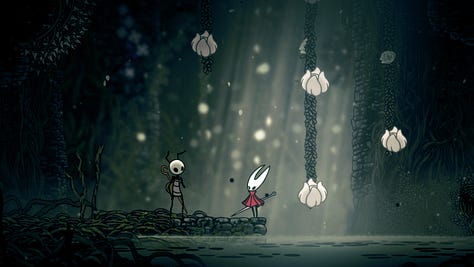
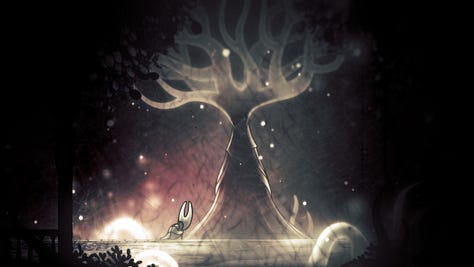
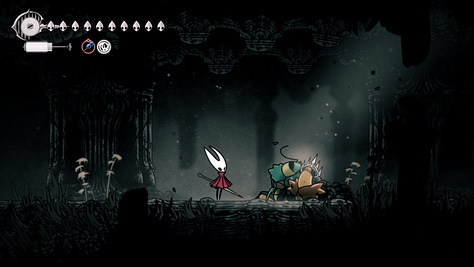
My solace is that I will continue to think on Hornet’s story and journey. I will join fans on Reddit and YouTube to discuss and listen to lore implications, the many connections between the first and second game, to think on what’s next for the small team from Adelaide who eschew traditional game development6 and whose only mission is “to build crazy, exciting worlds for you to explore and conquer.”
Now, if you’ll excuse me, I’m going to extract myself from this well once and for all.
Thank you to those who have reached out and checked in. That’s very lovely of you.
Internal read, sadly no. I’m truly sorry if I’m a reader of yours here. There’s been a strange psychological challenge of bringing myself to open up my Substack inbox. I will make amends.
Jamie, this also applies to you. Amen.
deeper into the well
I still love movies, Jo. Don’t go without me!
Famously going silent and adopting a “you’ll hear from us when it’s done” attitude.


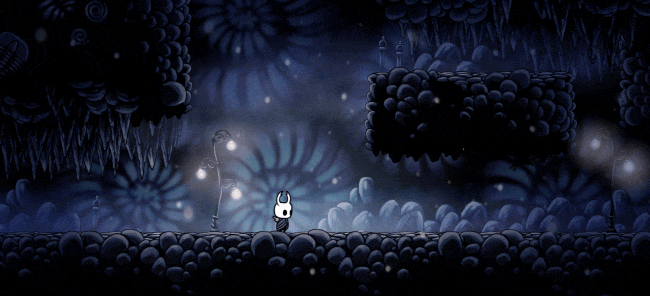


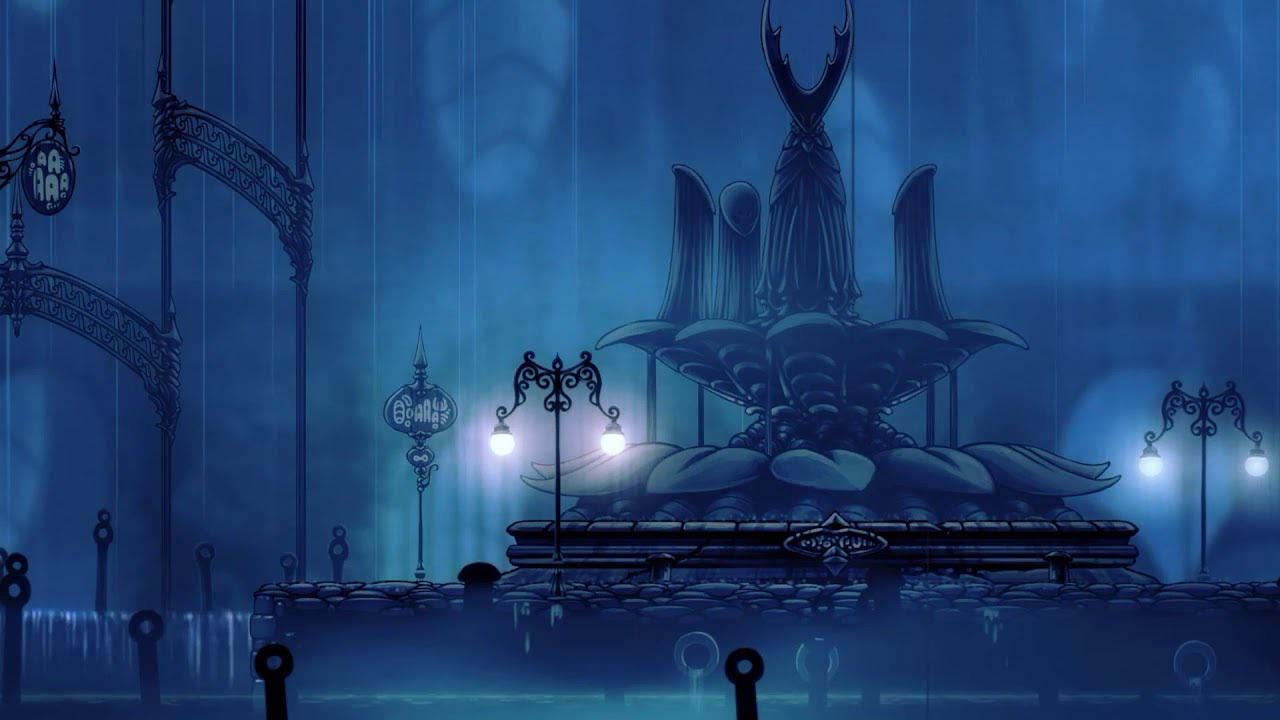
Good to see you back here, Nathan. Your first paragraph spoke ro me, as I've been going through some stuff myself. I've been thinking about writing about it, but not sure.
Regarding "sensibilities that all developers—all writers, for that matter; even those who rely excessively upon em-dashes—should strive to achieve.": I wish you had expound on that, because I would love to know why. I have my own reasons for agreeing with you, but you first!
Onward and upwards, dear friend.
I don't think this is the first time you have fluttered through my thoughts only for me to find a post the very next day — I was reading a passage from Norwegian Wood to a student with made me think, I wonder what Nathan is up to? — anyway, it's great to see you back and I hear you, I too have had a severe lack in terms of time and inspiration to write regularly over the summer months — hopefully winter will remedy that...
I am not a gamer, as you can probably guess but believe it or not I have heard of this much waited for Silksong, even heard the title song... both my son and daughter have raved to the extent of my being unable to ignore their excitement! And here you are endorsing it! Strikes me, as games go, it must be phenomenal !